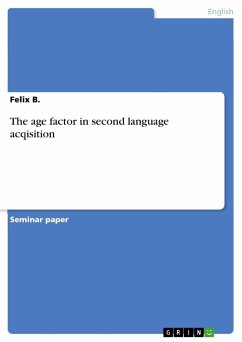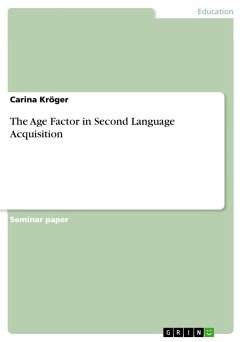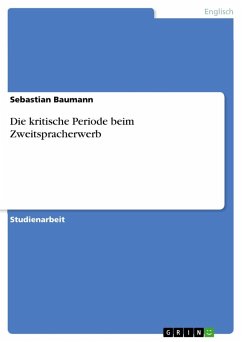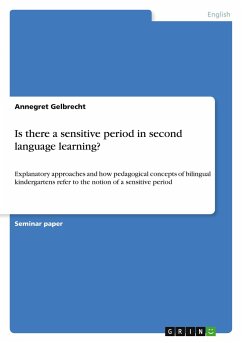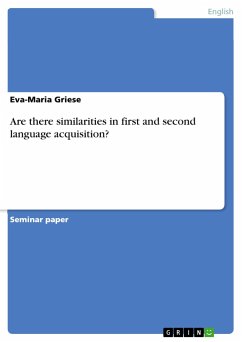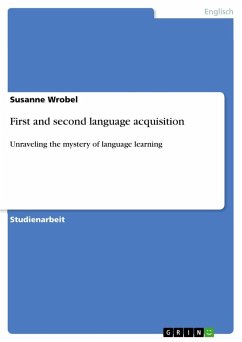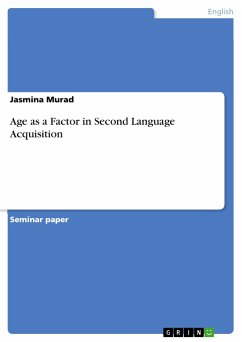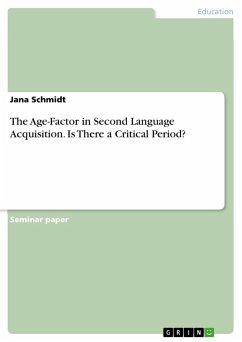Seminar paper from the year 2010 in the subject English Language and Literature Studies - Linguistics, grade: 1,3, Ernst Moritz Arndt University of Greifswald, course: Language Acquisition, language: English, abstract: Human beings have the capacity to acquire not only a mother tongue, but also second or third languages. Consequently it is not unusual that we find much more bilingual and multilingual individuals than monolingual in our world today. Broad levels of population deal with different languages in addition to their mother tongue and this knowledge is more and more seen as normal in nearly every area of life. The potential for acquiring second languages seems to last throughout one's lifetime but depends on many variables. According to Muriel Saville-Troike individual learners acquire second languages differently in consequence of influencing factors like age, sex, aptitude, motivation, cognitive style, personality or learning strategies. Age as an effective factor in second language acquisition is thereby one of the most controversy variables and recurring themes. The question of whether, and how, age affects this acquiring process has been a major issue in second language research since its establishment. This paper should examine the relationship of the age to second language acquisition. Therefore a number of several studies provide different point of views and some of them will be specified in this paper. The structure is based on the book 'Language Acquisition: The Age Factor' by David Singleton and Lisa Ryan (2004) which was also used as main source.In conclusion a critical review on the several positions will be carried out to see whether there is an optimal age to start acquiring a second language or not and whether a critical period hypothesis in second language acquisition exists or not.

